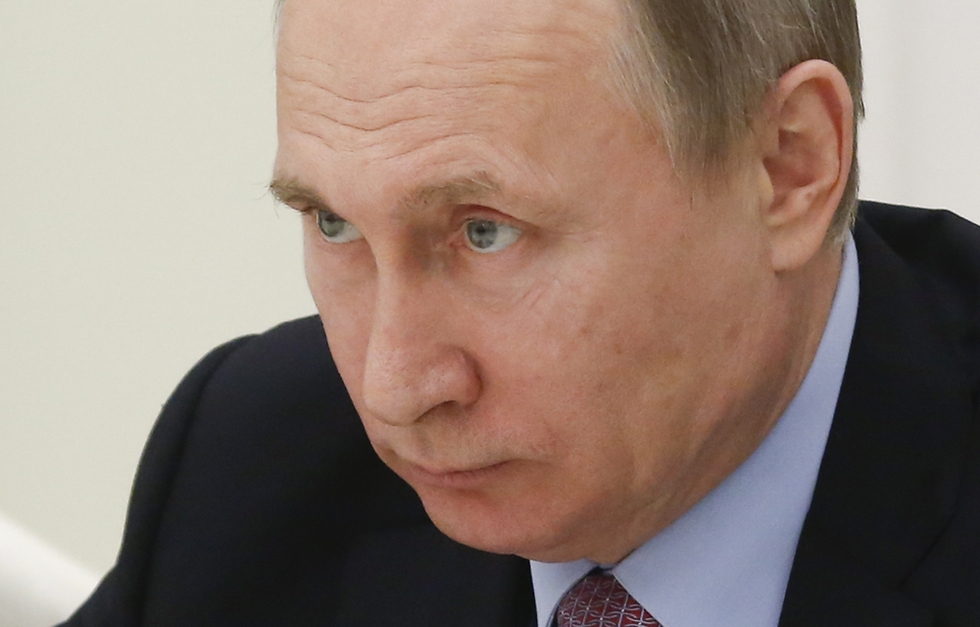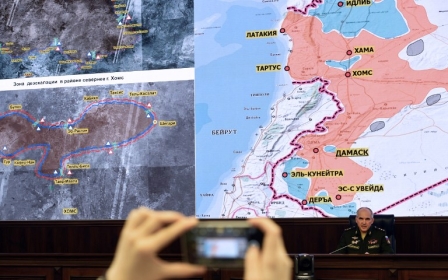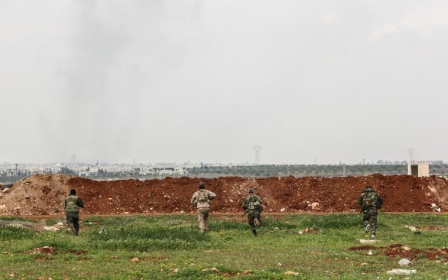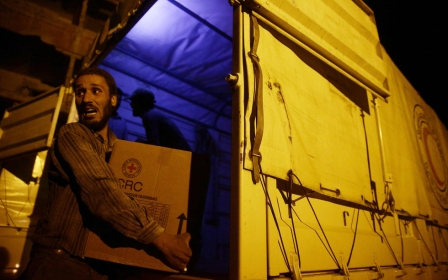Syrian safe zones agreement in full

Memorandum on creation of de-escalation areas
The Islamic Republic of Iran, the Russian Federation and the Republic of Turkey as guarantors of the observance of the ceasefire regime in the Syrian Arab Republic (hereinafter referred to as "Guarantors"):
- guided by the provisions of UNSC resolution 2254 (2015);
- reaffirming their strong commitment to the sovereignty, independence, unity and territorial integrity of the Syrian Arab Republic;
- expressing their determination to decrease the level of military tensions and to provide for the security of civilians in the Syrian Arab Republic,
have agreed on the following:
1. The following de-escalation areas shall be created with the aim to put a prompt end to violence, improve the humanitarian situation and create favorable conditions to advance political settlement of the conflict:
- Idlib province and certain parts of the neighbouring provinces (Latakia, Hama and Aleppo);
- certain parts in the north of Homs province;
- in eastern Ghouta;
- certain parts of southern Syria (Deraa and Quneitra provinces).
The creation of the de-escalation areas and security zones is a temporary measure, the duration of which will initially be six months and will be automatically extended on the basis of consensus of the guarantors.
2. Within the lines of the de-escalation areas:
- hostilities between the conflicting parties (the government of the Syrian Arab Republic and the armed opposition groups that have joined and will join the ceasefire regime) with the use of any kinds of weapons, including aerial assets, shall be ceased;
- rapid, safe and unhindered humanitarian access shall be provided;
- conditions to deliver medical aid to local population and to meet basic needs of civilians shall be created;
- measures to restore basic infrastructure facilities, starting with water supply and electricity distribution networks, shall be taken;
- conditions for the safe and voluntary return of refugees and internally displaced persons shall be created.
3. Along the lines of the de-escalation areas, security zones shall be established in order to prevent incidents and military confrontations between the conflicting parties.
4. The security zones shall include:
- Checkpoints to ensure unhindered movement of unarmed civilians and delivery of humanitarian assistance as well as to facilitate economic activities;
- Observation posts to ensure compliance with the provisions of the ceasefire regime.
The functioning of the checkpoints and observation posts as well as the administration of the security zones shall be ensured by the forces of the guarantors by consensus. Third parties might be deployed, if necessary, by consensus of the guarantors.
5. The guarantors shall:
- take all necessary measures to ensure the fulfillment by the conflicting parties of the ceasefire regime;
- take all necessary measures to continue the fight against Daesh/ISIL, Nusra Front [Jabhat Fateh al-Sham] and all other individuals, groups, undertakings and entities associated with al-Qaeda or Daesh/ISIL as designated by the UN Security Council within and outside the de-escalation areas;
- continue efforts to include in the ceasefire regime armed opposition groups that have not yet joined the ceasefire regime.
6. The guarantors shall in two weeks after signing the memorandum form a joint working group on de-escalation (hereinafter referred to as the "Joint Working Group") composed of their authorised representatives in order to delineate the lines of the de-escalation areas and security zones as well as to resolve other operational and technical issues related to the implementation of the memorandum.
The guarantors shall take steps to complete by 4 June 2017 the preparation of the maps of the de-escalation areas and security zones and to separate the armed opposition groups from the terrorist groups mentioned in paragraph (5) of the memorandum.
The Joint Working Group shall prepare by the above-mentioned date the maps of the de-escalation areas and security zones to be agreed by consensus of the guarantors as well as the draft regulation of the Joint Working Group.
The Joint Working Group shall report on its activities to the high-level international meetings on Syria held in Astana.
The present memorandum enters into force the next day after its signing.
Done in Astana, 4 May 2017 in three copies in English, having equal legal force.
Signatures
Islamic Republic of Iran, Russian Federation, Republic of Turkey
Stay informed with MEE's newsletters
Sign up to get the latest alerts, insights and analysis, starting with Turkey Unpacked
Middle East Eye delivers independent and unrivalled coverage and analysis of the Middle East, North Africa and beyond. To learn more about republishing this content and the associated fees, please fill out this form. More about MEE can be found here.




